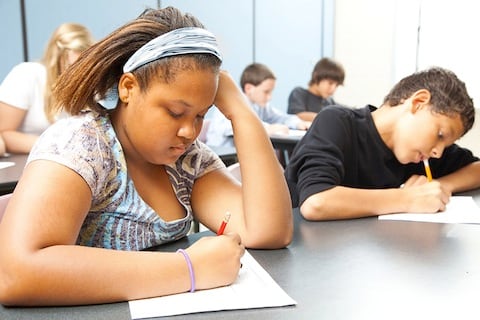Illinois is among several states that petitioned the federal government to delay standardized testing another year amid the pandemic. Now that the federal government has said testing must happen, what’s next?
The Illinois State Board of Education says it now will pursue waivers where it can, including for school ratings. The state also hopes to get permission to bypass the 95% participation requirement for federally required standardized tests, which would mean districts could test fewer students.
“While we had advocated for blanket waivers of federally required assessments this spring, we are committed to providing you with every possible support and flexibility to ensure a safe and equitable assessment administration,” said state Superintendent, Carmen Ayala, in a statement to school district administrators.
This announcement comes on the heels of the U.S. Department of Education’s guidance that states across the country must administer standardized tests this school year. In the department’s letter, states can request to shorten assessments, provide tests remotely, or extend the time students can sit for the exam.
The board of education had been debating whether or not they should have standardized tests this school year amid the coronavirus pandemic. While advocates have been pushing for tests without accountability measures to account for learning loss, superintendents around Illinois have been pushing back against standardized testing citing the difficulties that schools face with reopening.
Over 600 of the state’s superintendents — accounting for almost two-thirds of Illinois schools districts — signed a letter urging the state department of education not to go forward with spring testing because they are struggling to reopen school districts. Many families are not comfortable yet with sending their children to classrooms, and there aren’t guarantees that all staff have opportunities for vaccinations.
As of Feb. 24, the state board of education reported that about 1.7 million of the state’s students are doing some in-person learning — with more than 1.3 million students in a blended learning model and about 350,000 in person full time. More than 200,000 students are fully remote.







